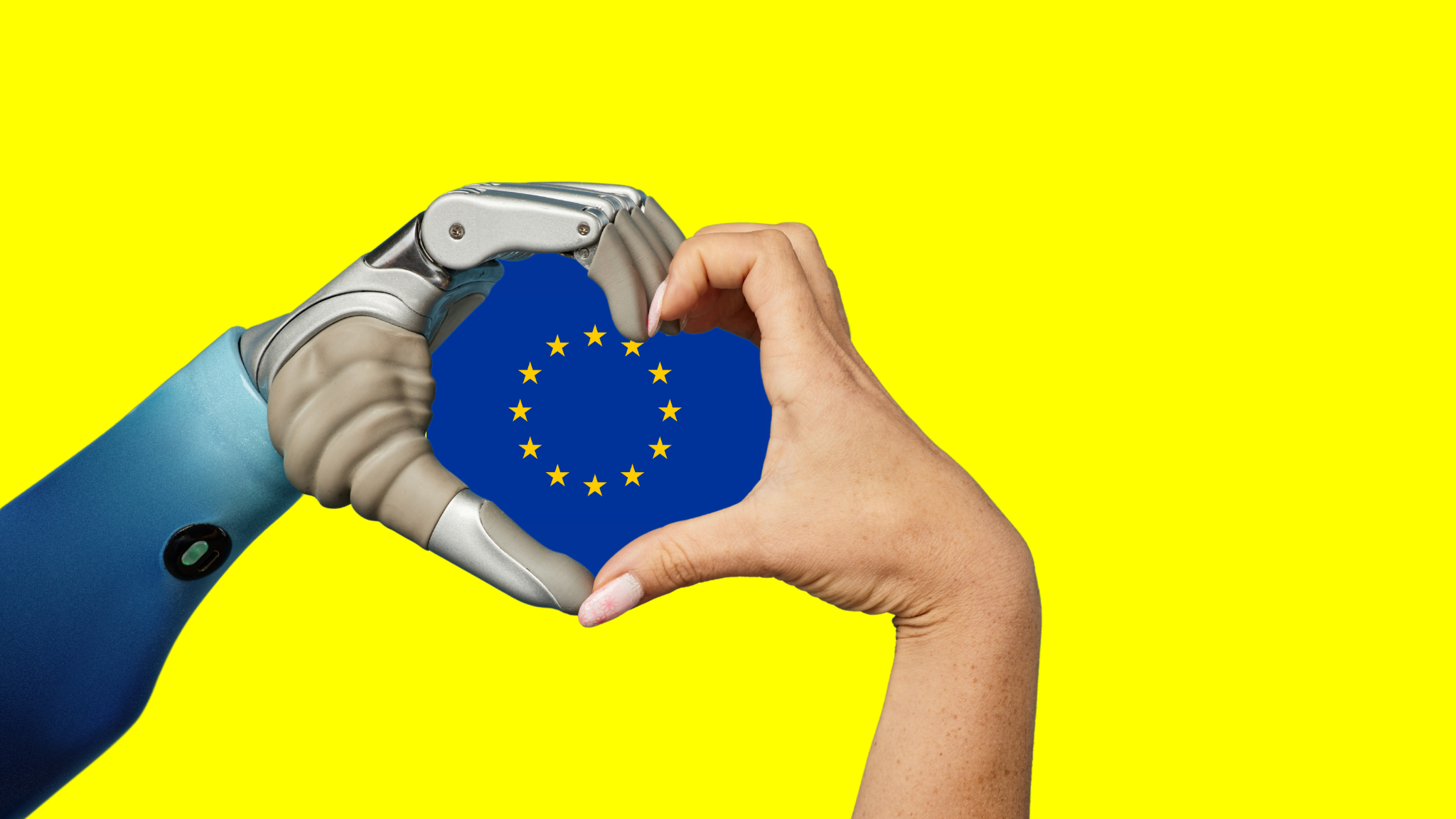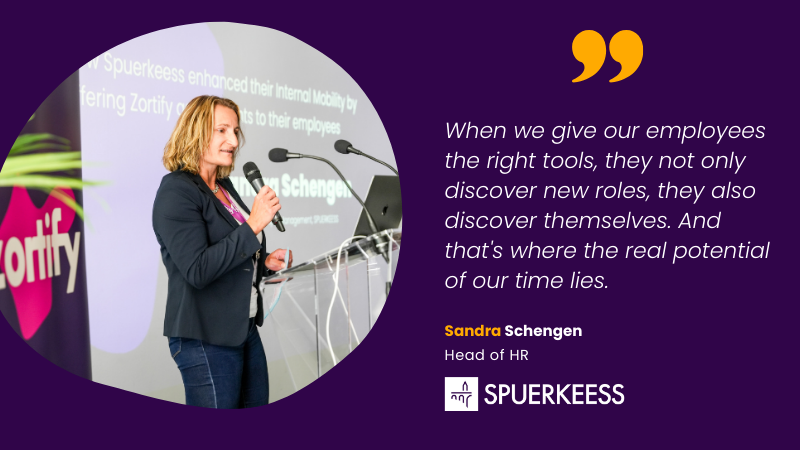Your Gut Feeling is Gutting Your Talent Pipeline

We think we’re thorough. Our HR processes are well thought-out. Our hiring decisions are sound. Research says: We’re wrong.
The uncomfortable truth: our brain makes a judgment about our conversation partner in the first few seconds. Even if the final decision for or against an applicant is not made until minutes later, the course has already been set. The rest of the interview? – Simply a search for confirmation. We are not looking for the best candidate, but for reasons why our gut feeling is right.
No second chance to make a first impression? – There is!
The mantra “There is no second chance for a first impression” is not only wrong in recruiting, it is reckless. It justifies hasty gut decisions and superficial judgments. The fact is that first impressions are almost always incomplete and often irrelevant.
What happens in our heads in the first few seconds? We evaluate voice, appearance, handshake, eye contact – all things that have little or nothing to do with job performance. 48% of HR decision-makers openly admit that prejudices influence their decisions. Realistically, this figure is closer to 100%.
The next 30 minutes of the interview are therefore not much more than a stage for confirmation bias.
- The brilliant but introverted developer? “Not present enough.”
- The experienced executive with an accent? “Not a strong communicator.”
This is not an exception. This is the system. The pressure is real, as is the self-deception. Time-to-hire is tracked, jobs actually have to be filled yesterday, and we tell ourselves we are thorough. But we are not. Above all, we are thoroughly biased.
AI breaks the cycle
While we supposedly carefully screen applicants, modern AI analyzes hundreds of relevant personality traits in a focused, precise and objective manner within the very same time period. What our intuition compromises, AI perfects in milliseconds. It gives every candidate a real second chance. Based on data, not prejudice. While we search for confirmation, AI emotionlessly scans what really counts.
When humans reach their limits and machines shine
Our brains are still optimized for the Stone Age, i.e. for quick friend-foe recognition, not for differentiated HR decisions in a globalized knowledge society. Unconscious Bias is an evolutionary feature, not a bug that can just be fixed.
What AI can do in seconds:
- Analyze hundreds of personality dimensions
- Assessment without cultural bias
- Consistent standards for all applicants
- Prediction of job performance based on valid data
What people do in the same time:
“He seems likeable.”
“She doesn’t fit into the team.”
In short: we fall for our prejudices based on skin color, gender, accent or similarities between the applicant and our own CV. The “cultural fit” is often just a cover for these unconscious prejudices. Universities attended together, familiar names, similar biographies: all this acts as a filter. Unfortunately, it is the wrong one.
The question to CEOs: Would you invest like this?
Would you invest a million euros on gut feeling? Without data, without analysis, without risk assessment?
No?
So why do you make the most important business decision – the one about your staff – like an impulse purchase? Every bad hire costs you 1.5 to 3 times the annual salary. In the case of managers, it can quickly add up to over €200,000 per mistake. Human intuition” is the most expensive poor decision your company makes. You invest six-figure amounts in employer branding, while your selection process scares top talent away. Rejected applicants talk to each other. Bad experiences go viral – and cost you the next generation of talent.
AI does not make us unemployed, it makes us better.
AI does not replace people. It replaces bad human decisions. A good AI analyzes more data in seconds than we humans do in an entire conversation. Not because it is smarter, but because it is not distracted. Modern AI-supported diagnostics filter precisely, efficiently and objectively. NLP technology recognizes personality patterns and skills while we are still thinking about whether the handshake was firm enough. The game changer: when AI makes the pre-selection, we are no longer evaluating “a person”, but “a promising candidate who has already been objectively assessed”. Our bias no longer has a chance to shape the conversation from second one.
Strategies for the AI-supported revolution in recruitment
The human touch is out of place in recruiting. The new generation of applicants expect fairness, not folklore. They want to be evaluated for what they can do, not for how familiar they seem to us. Companies with AI-supported recruiting will therefore systematically attract the better talent.
Here’s how you can get started:
- Objective data instead of subjective impressions: Define measurable criteria for each role. Let AI evaluate before humans decide.
- Intelligent pre-selection = efficiency: Use AI for initial, data-based filtering. Then you can concentrate 100% on the really promising candidates. This way, you combine machine precision with human judgment. The process is quick and thorough.
- Feedback loops: Measure the success of your hires after six months. Which of your gut decisions has proven successful? (The truth might hurt).
- Diversity by design: Integrate fairness directly into the process. Good AI is not neutral, it is intentionally inclusive. Choose providers wisely. To the checklist
The moment of truth
We have two options:
Option 1: Carry on as before. Convince ourselves that 30 years of recruiting experience is more objective than data-based analysis. Watch systematic bias cost our team millions and drive the best talent to the competition.
Option 2: Gather the courage to recognize our own limitations and use AI for what it is: a tool that does in seconds what humans overlook in minutes. Objective pre-selection that gives every candidate the fair chance he or she deserves.
The decision is up to us. But if we now make it based on gut feeling again, we have not yet understood this text.
Prof. Dr. Florian Feltes
Prof. Dr. Florian Feltes is co-founder and co-CEO of zortify and a forerunner in AI-supported HR innovation. Together with his team, he develops intelligent personality diagnostics and helps companies identify the perfect candidates—without expensive assessments and without bias. His vision: a world in which every company can effortlessly form high-performance teams and create work environments that allow human potential to flourish.


If your CHRO is still counting heads, you’re already losing the best ones!

EU AI Act – HR Must Deliver on AI – But Not Alone
